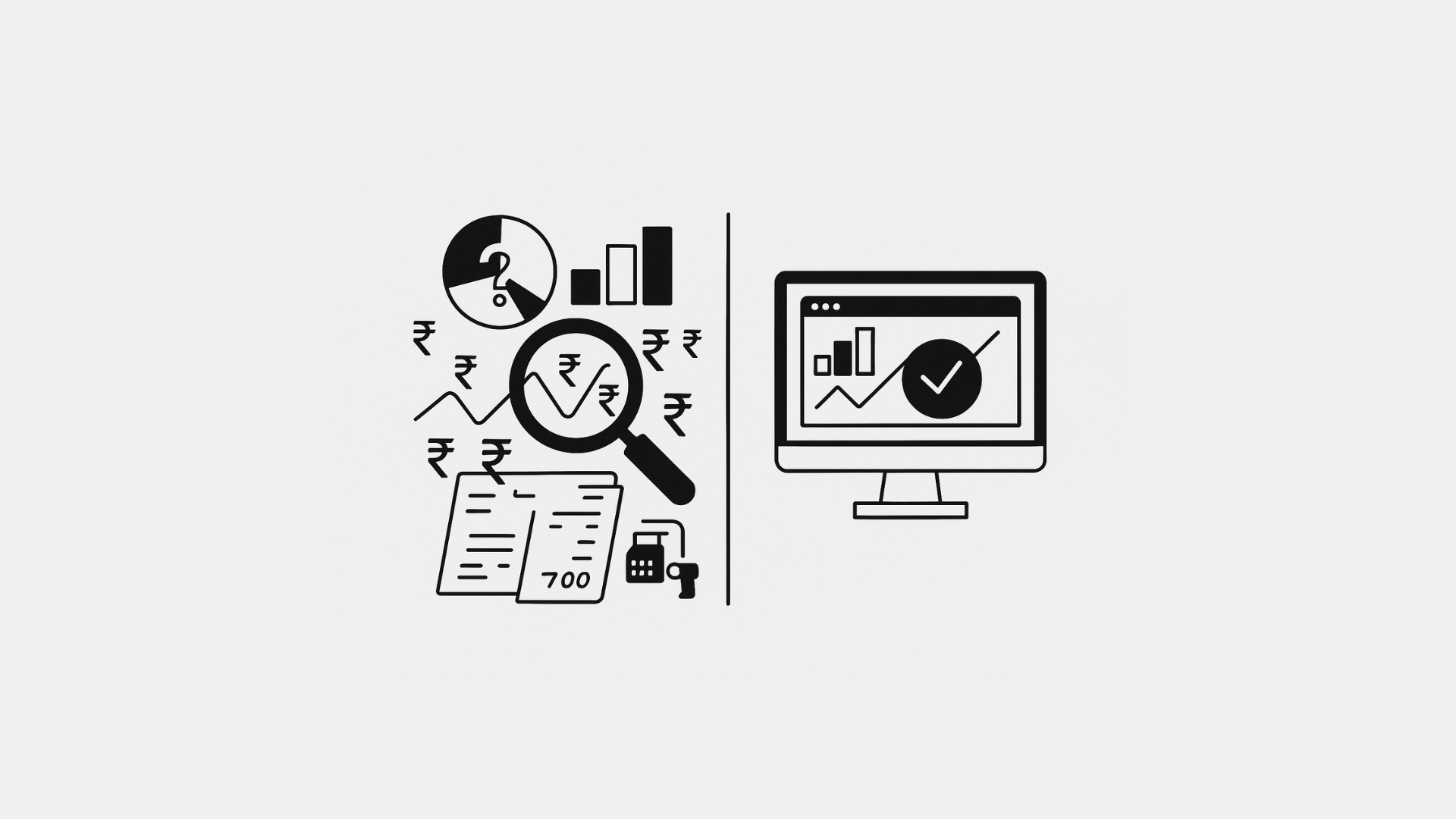Effective delegation is essential in modern business, especially as teams grow and tasks become more complex. Today, managers and team leaders use mobile apps to share responsibility, track progress, and communicate instantly. This digital shift has increased transparency, reduced delays, and improved overall team performance. By delegating through well-designed mobile platforms, organizations gain:
- Immediate Task Assignment and Tracking: Tasks are set, received, and updated in real time.
- Enhanced Communication: Instant notifications and chat features help clear doubts quickly.
- Greater Accountability: Every task has a record, which helps in monitoring progress and measuring performance.
- Improved Efficiency: Mobile apps reduce the need for lengthy emails and meetings while streamlining workflow.
Read also: Task Automation for Business Efficiency
These immediate benefits help teams reduce errors and allow management to focus on higher-level strategic decisions.
What Is Delegation and Why It Is Critical
Definition and Importance
Delegation is the process of assigning responsibility and authority to team members to complete specific tasks. In a business setting, delegation allows managers to focus on strategic activities while team members handle operational tasks. The benefit of delegation is twofold:
1. Capacity Building: It develops the skills of employees and prepares them for future responsibilities.
2. Operational Efficiency: It speeds up the workflow, reduces bottlenecks, and minimizes the risk of burnout among managers.
Traditional Challenges in Delegation
Before modern tools came into play, delegation was often executed through verbal communication, handwritten notes, or static spreadsheets. These older methods had several limitations:
- Ambiguity: Verbal instructions could be misunderstood or forgotten.
- Lack of Accountability: Without clear records, it was hard to assess task progress.
- Inefficient Follow-Up: Relying on meetings or phone calls to check status resulted in delays.
Many organizations struggled with these issues, which led to projects running over budget, deadlines being missed, and overall performance suffering. In the modern workplace, clear delegation is more than important—it is vital to day-to-day success.
The Rise of Mobile Apps in Delegation
Shifting from Paper to Digital
With advancements in mobile technology, delegating tasks has become more straightforward and transparent. Mobile apps have replaced outdated methods by offering a digital platform where tasks can be assigned, monitored, and completed with just a few taps on a smartphone. In the digital age, this shift is not only a matter of convenience but one of necessity.
Read also: How to Build a Mobile Strategy for Your Retail Business
Key Features of Mobile Delegation Apps
Modern mobile delegation apps incorporate several features that address earlier challenges. These include:
- Real-Time Notifications: Team members receive instant alerts when tasks are assigned or updated.
- In-App Messaging: Built-in messaging ensures rapid resolution of queries.
- Document Attachment: Files, images, or instructions can be attached to tasks so that all details are in one place.
- Progress Dashboards: Visual dashboards present task status and deadlines at a glance, making it easy for managers to track progress.
These features are now driving a significant improvement in how tasks are managed and tracked within teams across industries.
Critical Benefits of Using Mobile Apps for Delegation
Immediate Clarity and Reduced Misunderstandings
Mobile apps provide clear, written records of every task. This immediate clarity helps in reducing misunderstandings. When a task is assigned digitally, all details—such as deadlines, requirements, and priority levels—are recorded. This reduces the chance of misinterpretation and increases the likelihood that tasks will be completed on time.
– Example: A project manager assigns a task using a mobile app, providing clear instructions and a deadline. The team member receives the assignment instantly and acknowledges it, which confirms understanding and readiness to begin work.
Enhanced Accountability and Performance Tracking
Every delegation action is logged within these apps, making it easy to monitor who is responsible for what. Managers can check the status of a task at any time, and completed tasks come with a timestamp and details on how they were handled. This transparency creates an environment of accountability.
– Tip: Encourage team members to update their tasks regularly to maintain clear records of progress.
Streamlined Communication and Faster Resolution of Issues
The built-in communication tools in these apps help reduce delays. Instead of sending separate emails or arranging meetings, team members can use the chat feature to ask quick questions or provide status updates. This integrated system speeds up decision-making.
– Case Insight: In a fast-paced marketing team, quick clarifications on content revisions can be handled instantly via the mobile app chat, rather than delaying project timelines with multiple emails.
Better Coordination and Task Prioritization
Managers can view all tasks on a visual dashboard, allowing them to see which tasks are overdue or running behind schedule. This helps in prioritizing work effectively. When urgent assignments arise, tasks can be re-prioritized and reassigned quickly within the app.
– Practical Advice: Regularly reviewing the dashboard at the start of the day can help set clear priorities and adjust workloads as needed.
Data-Driven Decision Making
Many mobile delegation apps offer analytics tools that compile data from task completions, updates, and delays. This information can be used to identify patterns, measure performance, and make informed decisions about process improvements.
– Analytical Insight: If a manager notices recurring delays in a specific phase of project completion, they can investigate further and adjust processes accordingly, ultimately improving overall efficiency.
A Detailed Look at the Evolution of Delegation Through Mobile Apps
The Early Stage: Manual and Analog Methods
Before the digital age, delegation was often a handwritten or verbally communicated process. Managers used physical notes, email chains, and face-to-face meetings to ensure tasks were understood. However, these methods had many drawbacks:
– Manual Errors: Handwritten notes are prone to miscommunication.
– Delayed Updates: If a change occurred, the whole process had to be restarted.
– Limited Accessibility: Information could be locked in a physical file or dependent on a meeting schedule.
Transition Phase: Desktop-Based Task Management Software
With personal computers becoming more common, many organizations introduced desktop-based task management tools. These systems digitized the process by allowing managers to type out instructions and use spreadsheets to track progress. Although a step forward, these systems still lacked real-time updates and mobile access.
– Drawback: Desktop systems could not offer notifications on the go and were tied to office workstations, limiting flexibility.
The Mobile Revolution: Delegation on the Go
The introduction of smartphones and cloud-based applications marked a turning point. Today, managers and team members can access delegation apps from anywhere, providing immediate updates and real-time collaboration. This transformation is a cornerstone of modern management, as it increases responsiveness and reduces lag in communication.
– Impact: Teams become more agile and able to respond to market changes or project shifts as they occur.
Strategies to Implement Mobile Delegation Successfully
1. Define Clear Objectives and Responsibilities
Before adopting any new mobile app, it is important to define what you want to achieve. Establish clear goals for delegation, such as reducing task completion time or increasing task transparency. Clearly outline each team member’s responsibilities to prevent overlap or misunderstanding.
– Action: Create a written policy that specifies how tasks should be delegated and tracked using the mobile platform.
2. Choose the Right Tool for Your Team
There is a wide range of mobile apps available, each with different features. Consider the following factors when choosing one:
– User Interface (UI): The app should have a clean and easy-to-navigate design.
– Integration: Look for an app that integrates with other tools you already use, such as calendar apps or project management software.
– Customization: The ability to tailor features to your team’s workflow can improve adoption.
– Security: Make sure the app provides robust data protection features.
– Tip: Test a few options with a small team to see which one fits best before scaling to the entire organization.
3. Train and Onboard Your Team
Successful implementation requires that all team members understand how to use the new mobile tool. Offer hands-on training sessions and provide written or video tutorials. Encourage feedback during this period to identify any issues early.
– Best Practice: Hold a kick-off meeting where leaders demonstrate the app’s features and explain how it will improve daily operations.
4. Establish Regular Check-Ins and Reviews
Even after implementation, it is important to keep refining the process. Schedule regular reviews to assess how well the app is working and whether it meets your delegation needs. Use metrics provided by the app to evaluate performance and make adjustments.
– Continuous Improvement: Set aside time monthly to review task completion data and gather team feedback.
5. Foster an Environment of Open Communication
The success of delegation relies heavily on communication. Ensure that the mobile app supports open dialogue among team members. Encourage the use of comments and status updates on tasks so that everyone is aware of progress and challenges.
– Management Tip: Lead by example by actively participating in the app’s communication channels and recognizing timely updates.
The Impact of Mobile Delegation on Work Culture
Mobile delegation does more than improve efficiency—it can transform the workplace culture. When tasks are clearly assigned and tracked, employees feel more secure and accountable. This clarity can lead to a more empowered team. Here is how mobile delegation influences work culture:
Creating a Transparent Environment
With every task recorded and visible, transparency naturally increases. Managers and team members alike can see what is expected and how work is progressing. This openness builds trust within the team and minimizes misunderstandings.
Reducing Managerial Overload
Delegation through mobile apps allows managers to focus less on micromanaging and more on strategic decisions. When employees have clear instructions and the technology to track progress, the need for constant check-ins diminishes. This shift contributes to a more relaxed and empowered work atmosphere.
Read also : How Mobile Access Improves Employee Productivity
Enhancing Collaboration and Team Spirit
Mobile apps facilitate quicker and easier communication. Team members are not siloed; rather, they can share ideas and solve problems together in real time. Collaborative features like shared task boards and in-app messaging build a sense of unity and shared purpose.
Addressing Common Concerns and Challenges
While mobile delegation offers many benefits, some concerns may arise during the transition. Understanding and addressing these concerns is key to successful implementation.
Concern 1: Resistance to Change
Some team members may find it challenging to switch from traditional methods to digital tools. Overcome this resistance by clearly explaining the advantages and offering ample training.
– Strategy: Involve resistant employees early in the process by asking for their input and demonstrating how the tool will simplify their daily tasks.
Concern 2: Technical Glitches and Downtime
Like any software, mobile delegation apps may occasionally face technical issues. Prepare for these instances by having backup procedures in place.
– Backup Plan: Maintain a simple manual log system as a temporary measure in case the app experiences downtime.
Concern 3: Privacy and Security
Employees might worry about their task performance being constantly monitored. Emphasize that the system is designed to improve workflow and accountability, not to police every move.
– Solution: Choose an app with robust security measures and ensure that data is encrypted and accessible only to authorized personnel.
Future Trends in Delegation and Mobile Technology
The benefits of delegation via mobile apps continue to evolve as technology advances. Here are a few trends that may shape the future of delegation in the workplace:
Artificial Intelligence (AI) Integration
Future mobile delegation apps may incorporate AI tools to predict task delays, suggest optimal task assignments, and even identify bottlenecks before they impact workflow. AI can further streamline the process, making delegation more efficient and less reliant on manual input.
Enhanced Customization and Personalization
As mobile technology advances, apps will likely offer even more customization to fit various team needs. Tailored dashboards, personalized notifications, and adaptive interfaces will help each user get the most from the tool.
Greater Interoperability
Interoperability between different workplace tools is on the rise. Mobile delegation apps may soon integrate seamlessly with communication platforms, enterprise resource planning (ERP) systems, and project management tools. This integration will provide an even more unified experience.
Increased Focus on User Experience
User experience (UX) continues to be a key driver of success for mobile apps. Future developments are expected to prioritize simplicity, intuitive design, and ease of use, ensuring that delegation becomes an effortless part of daily operations.
Bringing It All Together: A Roadmap for Successful Delegation
The world of delegation has evolved dramatically with the advent of mobile technology. Successful adoption requires clear goals, careful planning, and ongoing refinement. Below is a roadmap that summarizes the key steps for integrating mobile delegation tools into your workflow:
1. Define Your Objectives:
Decide what you want to achieve (e.g., faster task completion, increased accountability).
2. Select the Right Tool:
Evaluate mobile apps based on usability, integration, security, and cost. Run a small pilot test to see which one fits your team best.
3. Train Your Staff:
Conduct comprehensive training sessions and provide supportive materials. Ensure every team member understands how to use the app effectively.
4. Implement a Feedback Cycle:
Establish a routine of gathering feedback from users. Use this data to make iterative improvements.
5. Monitor Performance:
Use the app’s analytics to track progress and identify areas where the process can be refined. Set measurable goals and review them regularly.
6. Foster Open Communication:
Build a culture where all team members feel comfortable discussing issues and suggesting improvements. Use in-app communication tools to maintain a constant flow of information.
7. Review and Iterate:
Regularly review your delegation process and make necessary adjustments. Stay updated with new features and trends in mobile delegation technology.
Final Thoughts
Modern delegation is not just a simple task assignment—it is a continuous process of monitoring, communicating, and improving. You may increase team engagement, streamline processes, and gain more clarity by integrating mobile applications into your delegation strategy. The shift from conventional techniques to a mobile-enabled, digital strategy is revolutionary. It not only improves work management but also puts your company in a more flexible position in a business climate that is changing quickly.
In conclusion, the usage of mobile applications for delegation
- Quickly assigns tasks and updates,
- Enhances openness and accountability,
- Encourages better team collaboration,
- In the end, it increases total productivity.
As you go, take into account the actions described in this tutorial as well as the upcoming developments that will keep changing delegation techniques. Your team can overcome obstacles and attain operational excellence with the correct strategy and technology.
Now is the time to transform the way your team works. Evaluate your current delegation methods, research mobile apps tailored for delegation, and begin a pilot test with your team. Share the benefits you observe, and commit to continuous improvement in your workflow. If you need further guidance or expert recommendations, do not hesitate to reach out.
Embrace the power of modern tools to create a more efficient and collaborative work environment. Stay tuned for more insights on leveraging technology for team success.








